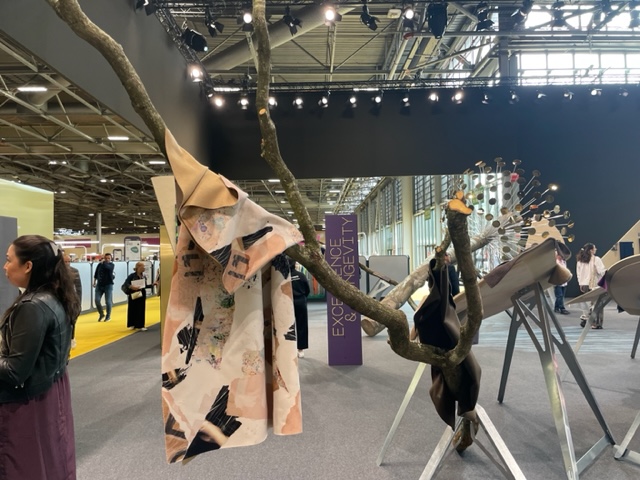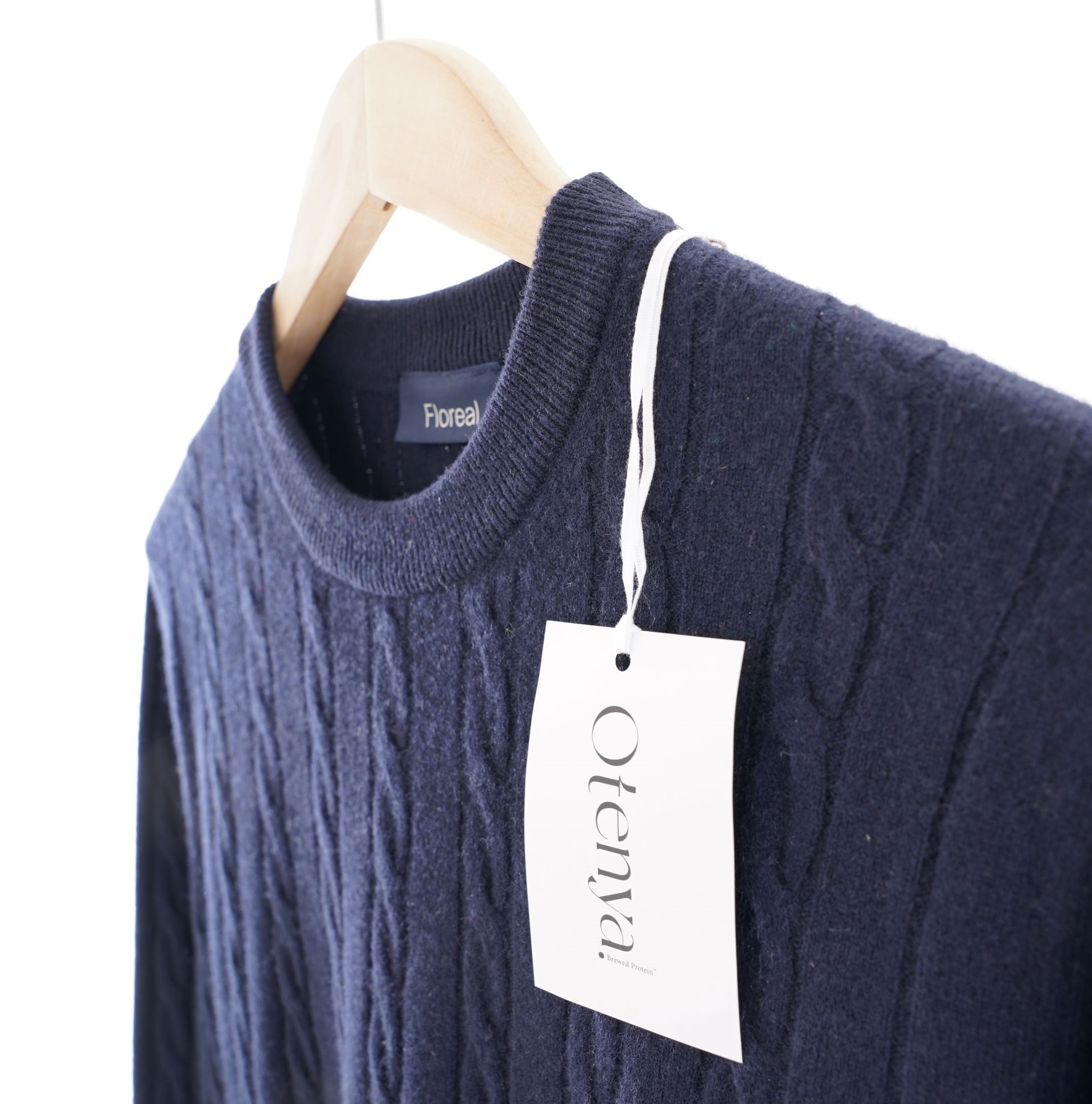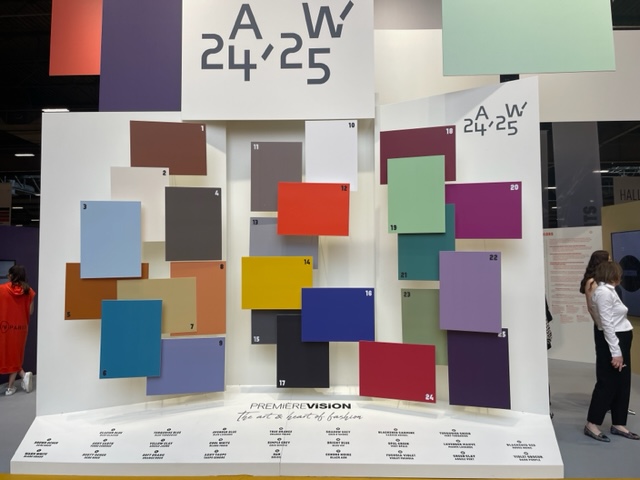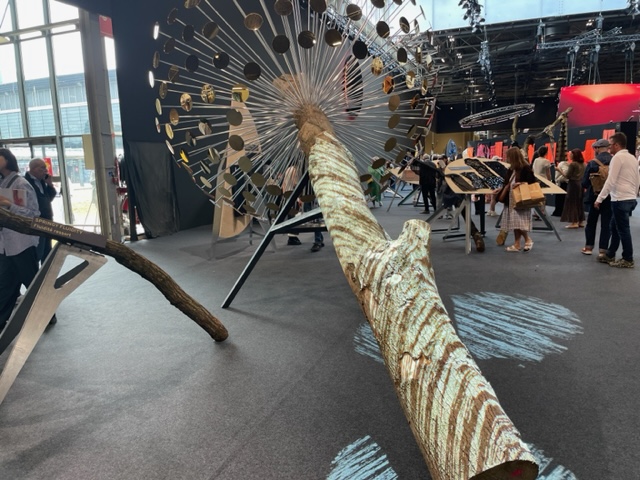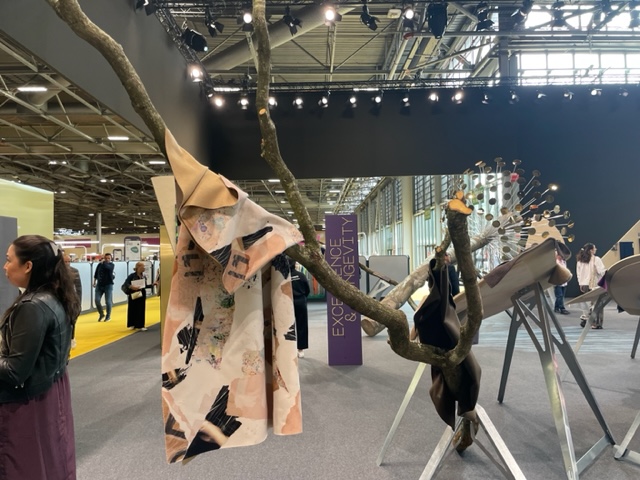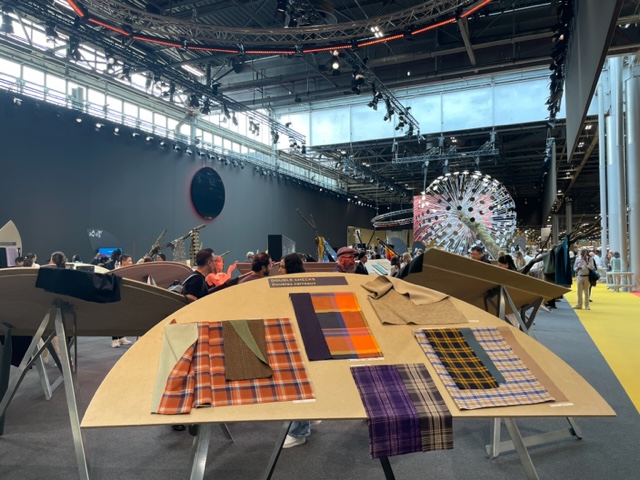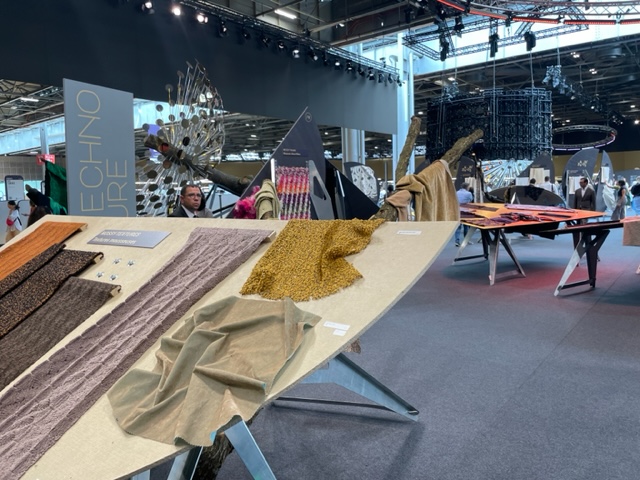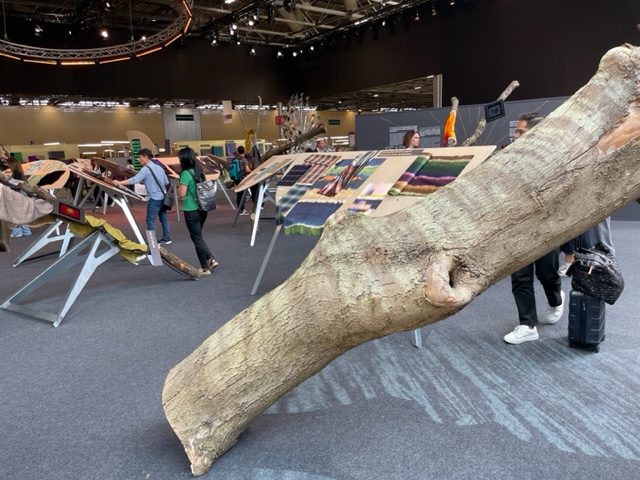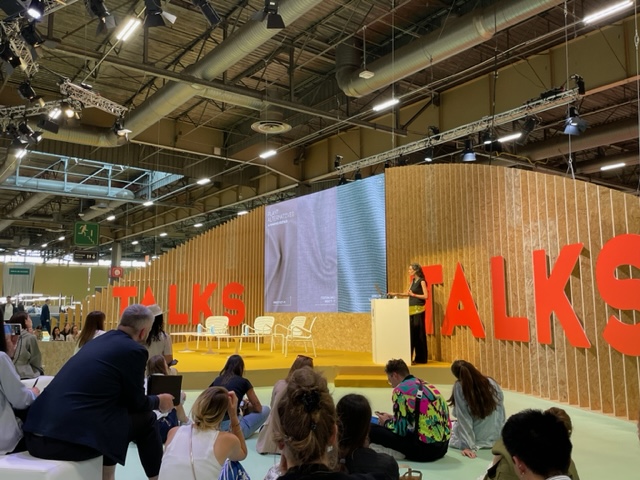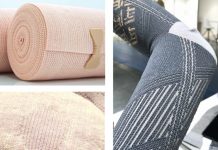Paris
Strong focus on eco solutions throughout 2024/25 supply chain.
Premiere Vision Paris promised a largely remodelled and rethought offer for the July summer edition in Paris for 2024-25. And in this, it did not disappoint. PVP celebrated its 50th year with a revamp of the whole area at PV. Eco responsibility was labelled ‘the better way,’ and the theme ran through the whole show; analysis of the need for how products are made, used, re-used or disposed of. The impact of the product becoming the most important factor.
The layout was changed, with Talk, a spacious area for discussions and the adoption of different ways of showing samples. New products were shown over five forums.
Beryl Gibson, textile and colour consultant, a member of the international colour team, described it as showing fewer small swatches, but selecting bigger examples, allowing emphasis on texture and weight of fabric as much as pattern, with better tactile access to fabrics for buyers.

Knitwear branches out
Knitted fabric was seen in areas usually reserved for wovens; double face, Prince of Wales patterns, compact designs, fantasy, used for futurist jackets and outerwear. Wool is already seen as a sustainable offer by the public, organic and sustainable particularly in knitwear.
Solar energy
Selected colours identified for Autumn Winter 024/25 reflected ideas of Solar energy, colours which accentuated colour and shine. There were also strong moves towards undyed yarns, like wool’s own shades of natural contrasting colours, tone on tone, creams, grey and warm browns. Natural colours with an organic nature, teamed with luminous, brighter organics in orange and yellow, blue marine, shimmering effects and diaphanous surfaces. Fabric descriptions bore witness to eco-sensitive qualities.
Participatory show
A new Eco-innovation forum was a highlight of the show in the Smart Hub. Talk forum discussions were amplified by the PV fashion team on social media where short, informal ‘guided visits’ on Instagram pointed at specific developments like recycling and snippets of colour and yarns.
A dialogue with visitors involved experts who debated the most efficient ways of tackling issues, linking up business and trends, Vincent Grégoire of consultancy Nelly Rodi, the company’s Director of Consumer Trends.
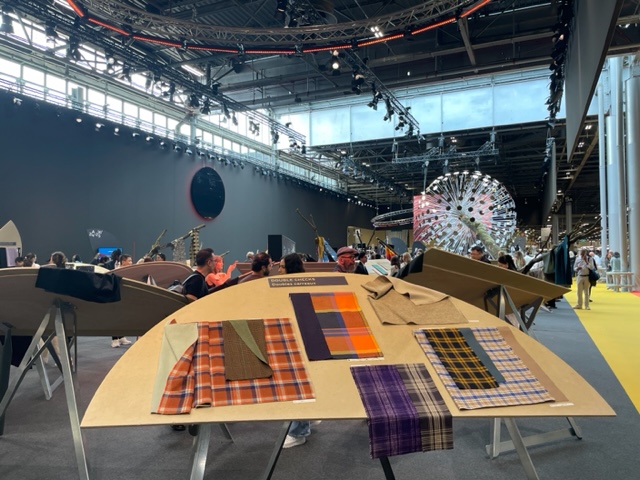
Tracking the lifecycle
Several rules and ideas came to the fore; products should be examined from the beginning for their end-of-life composition, to facilitate recycling or biodegrading. There are now more attractive possibilities of re- using synthetics by regenerating residues including plastics and cellulosics for different textiles.
Smart Creation emphasised Life Cycle Analysis introducing the Concept of ‘Fairly Made’. Establishing Life cycle assessment is regarded as crucial. Pioneers Lenzing’s zero impact development continues towards its goal with solar energy developments for Tencel textiles and transparent sourcing.
Exciting invention
An era of exciting chemical and artificial invention is in view. Such as the Spiber revolutionary brewed protein, creating zero waste fibres developed in Japan, already hitting the headlines. Ferney Spinning Mills and Floreal Knitwear Ltd both owned by CIEL group have launched Otenya (Spanish word Protein) a new yarn collection incorporating Brewed Protein fibres with a first knitwear collection with Ferney Spinning Mills.
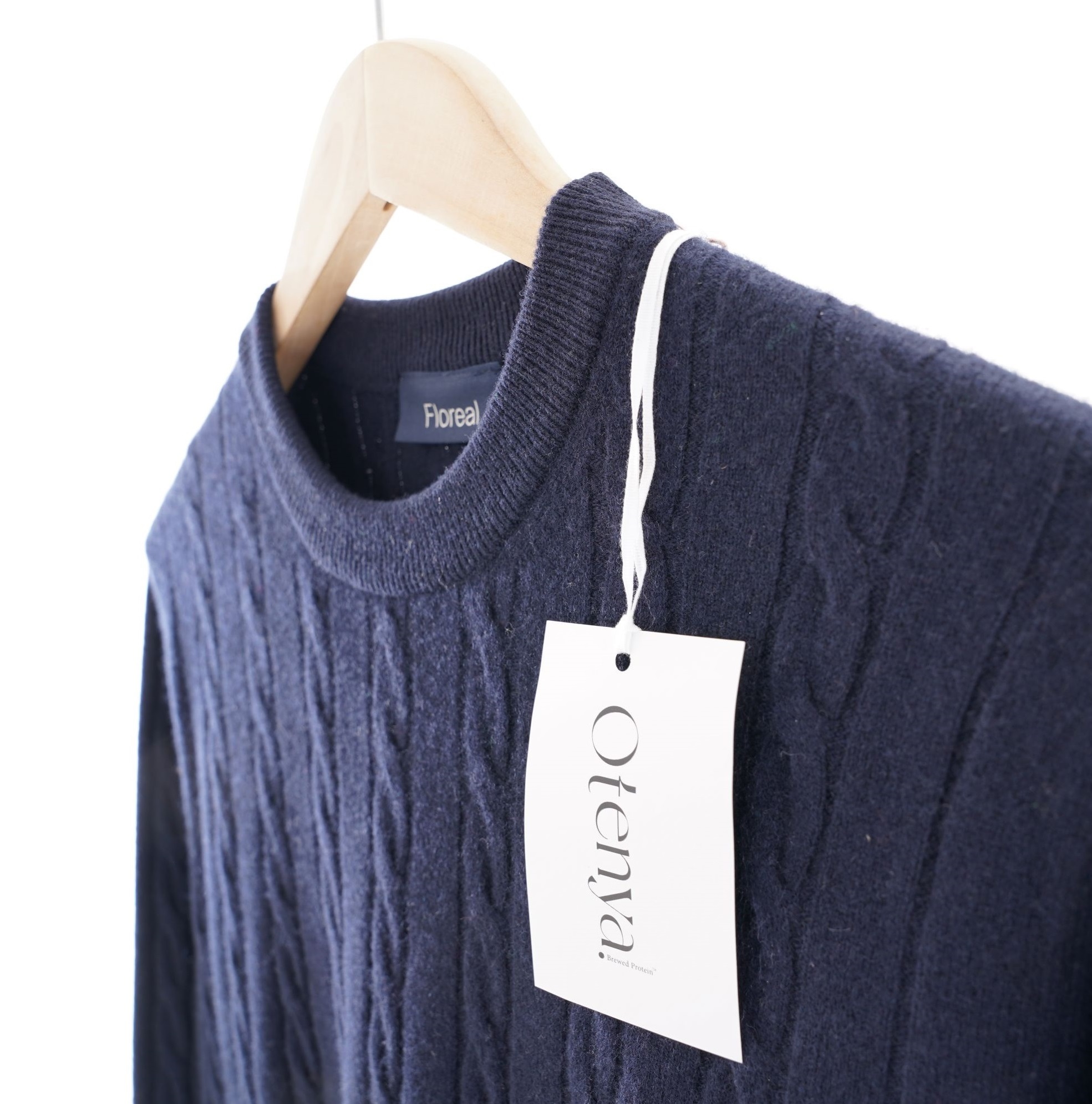
The Woolmark Company flagged up wool blended with banana and pulp to make an alternative to sports leather.
Makers of outdoor fabrics are putting much effort into assessing and modifying polyamide fabrics from polymerised natural biopolymers, to be used for knits with membranes and coatings. The aim is developing waterproof windproof and performance, free of petrochemicals.
Notable developments
Prints on bases with ecological added value, saw motifs developed on cellulose bases, obtained from sustainably managed forests. Eco luxury includes lace on recycled polyamide bases, refined Leavers lace in new compositions with organic cottons and bio sourced polyamide.
Fantasy, eco mindfulness, and fashion combine to reduce environmental impact with maximum visual appeal, like new generation sequins made from recycled materials.
QR codes for tracing in use at the show, are expected to deliver lifecycles routinely to garment purchasers. Dead stock, the new talking point, was the subject of a trail set up in the show. It can involve redistribution of luxury fabrics, as Nona Couture, part of LVMH, with ex-couture fabrics, cotton, silk at an affordable price. Adapta Paris exhibiting for the first time takes textile waste from luxury sources.
Gilles Lasbordes General Manager summed up that 2023 had been hit by a still unstable global economy, with consumer spending under pressure, a weakened mid-range and inflation. Nevertheless, at the close, more than 25,000 visitors from 95 countries attended, including participation in the busy interactive areas.

Subscribe To Our Newsletter
Join our mailing list to receive the latest news and updates from our team.


